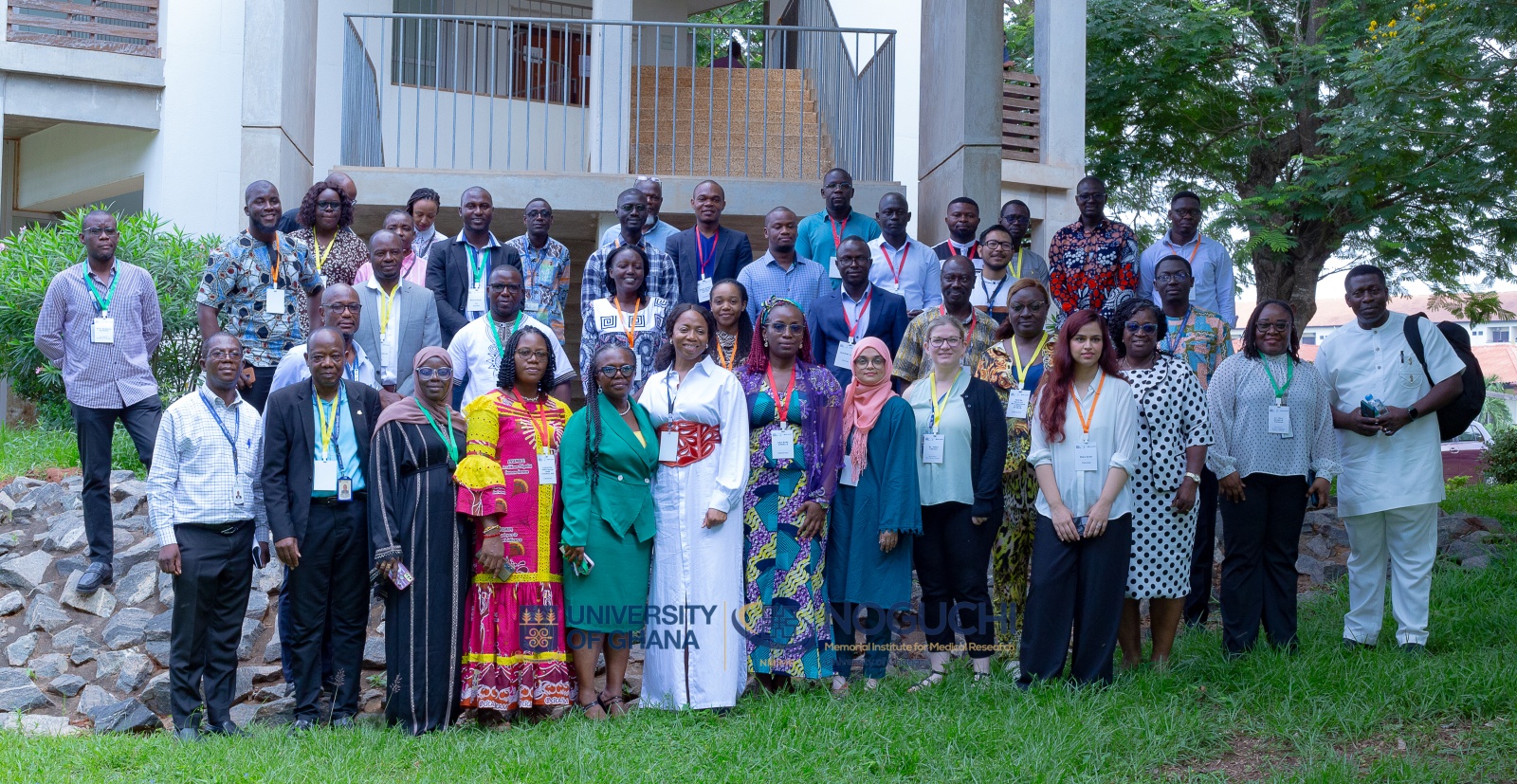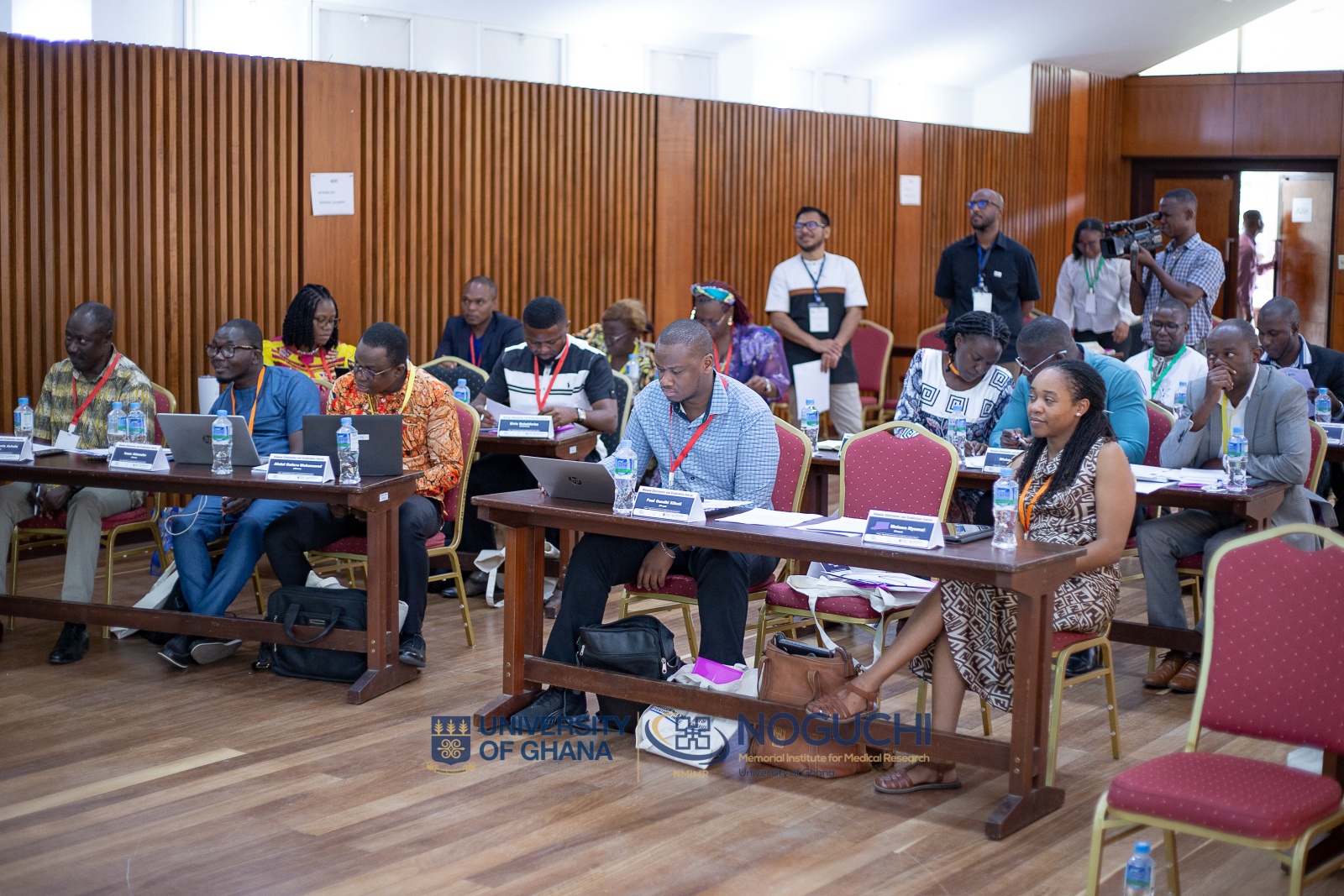Improving Health Systems for Effective Disease Elimination and Eradication Training Commences at NMIMR

The Noguchi Memorial Institute for Medical Research (NMIMR), in collaboration with the Abu Dhabi-based Global Institute for Disease Elimination (GLIDE) and The Carter Center, has commenced a comprehensive training workshop aimed at enhancing health systems for effective disease elimination and eradication in Africa.
Hosted by Prof. Collins Ahorlu, Head of the Department of Epidemiology at Noguchi and lead facilitator, the multi-module course marks a significant step in building capacity among health professionals in the sub-region.

The commencement of the training was marked with an opening ceremony attended by trainees and health professionals at the NMIMR Auditorium. Prof. Dorothy Yeboah-Manu, Director of Noguchi, speaking at the opening ceremony, highlighted the institute's contributions to disease elimination and its national impact.
She stated, “Noguchi has been instrumental in combating over ten Neglected Tropical Diseases (NTDs) and continues to play a crucial role in infectious disease surveillance and prevention programmes across Ghana. Our commitment to capacity building is unwavering as we strive to enhance public health outcomes through continuous training and innovation.”
Prof. Yeboah-Manu also provided an overview and introduced the trainees to the operations of the institute. She mentioned that research, training and community-centred approaches are at the forefront of the Institute’s public health efforts.
Dr. Ngozi Erondu, Technical Director of GLIDE, in her remarks, revealed the global mission of GLIDE and its collaborative efforts with various partners to accelerate health interventions. She said, “At GLIDE, we work tirelessly to accelerate the elimination of malaria, polio, lymphatic filariasis, and onchocerciasis. Our partnership with The Carter Center and institutions like Noguchi is vital in achieving these goals and supporting countries in their fight against infectious, non-communicable as well as neglected tropical diseases.”
She also detailed plans for ongoing post-training support for the trainees. “The main objective of the course is for participants to develop a disease elimination strategy. The best strategies from three countries will win trophies, with the first-place winner receiving $10,000 in seed funding to advance their strategy. Participants will also receive mentorship support to implement their strategies.”
Two representatives from the Ghana Health Service, Dr. Joseph Opare, National Tropical Disease (NTD) Programme Manager and Dr. Paul Boateng, Malaria Case Management Officer at the National Malaria Elimination Programme (NMEP), who were past beneficiaries of the 2023 training program, also shared their experiences. They highlighted Ghana's ongoing efforts in disease elimination, underscoring the importance of strong health systems and continuous professional development.

In 2022, GLIDE, in partnership with New York University School of Global Public Health (NYU SGPH), developed a comprehensive course designed to equip global health professionals and students with essential competencies for the elimination and eradication of infectious diseases. The course received critical support from The Carter Center in 2023.
In 2024, GLIDE, together with NMIMR in Ghana, The Carter Center and the University of Global Health Equity (UGHE) in Rwanda, launched an updated iteration of this course, enriching participants' understanding of disease elimination and eradication principles. The course, which includes both online and in-person components, aims to enhance participants' understanding of core principles and develop strategies for eliminating and eradicating infectious diseases, particularly NTDs, polio and malaria.
The workshop in Ghana, which features 31 participants from nine countries, is part of a broader initiative to strengthen global health systems and equip health professionals with the tools necessary to combat infectious diseases effectively. Through in-depth analyses of case studies, active learning and group participation, the course seeks to promote collaboration and innovation in the fight against diseases, ultimately improving public health outcomes in the participating countries.